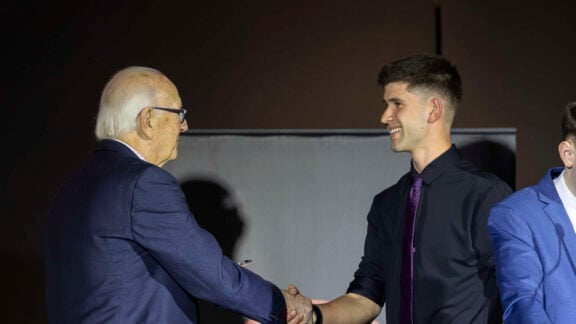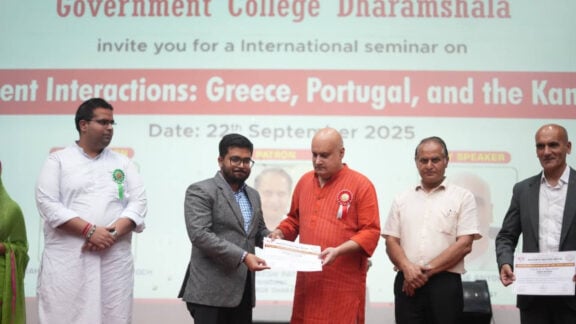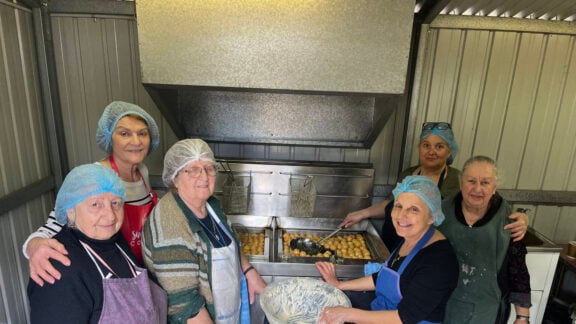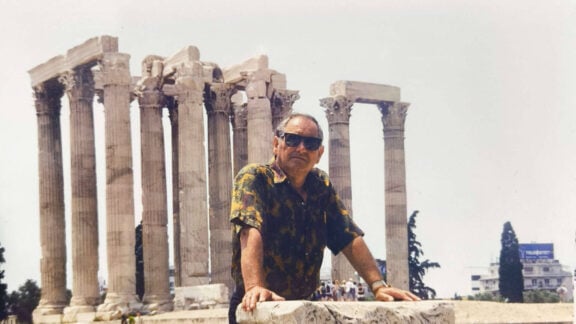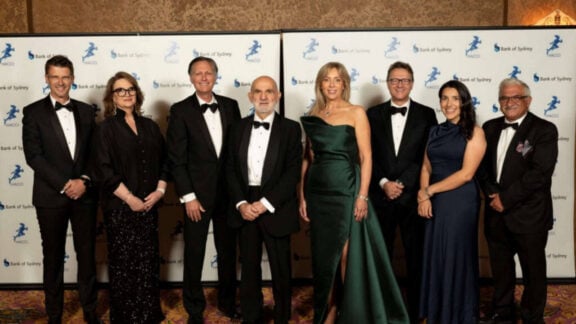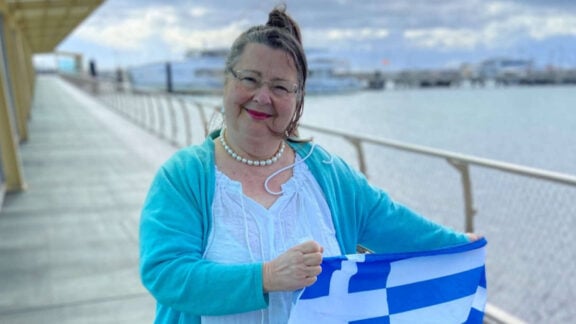Sexism and misogyny are hard topics to discuss without falling into a heated conversation that can divide women and men, diverting the dialogue from finding a way forward.
But the Greek Australian panelists who were invited to speak by the Greek Community for International Women’s Day, did so with insight, sensitivity and empathy.
Thoughtfully they pointed to their experiences, explaining their interpretations of what drives systemic inequality in every day life, how to address incidents of harassment, domestic and sexual violence, and what can be done going forward.
Journalist Dina Gerolymou and Professor Joy Damousi, coordinated the discussion on 17 March, which involved Melina Mallos, Fotini Kypraios, Anatoli Amanatides and Alkistis Pitsaki.
The four Greek Australian women answered questions about the absence of migrant women voices from the current public discourse, the biases and stereotypes that persist, and the new faces of sexism and misogyny.
Though the discussion was broad and delved into many aspects in today’s reality for women, the panelists agreed that the number one issue that keeps the Greek community behind, in addressing inequality and, more importantly, situations of domestic violence, and sexual, emotional, or financial abuse, is the silence.
Breaking the silence and removing the shame within the Greek Community
“To start with, that phrase, ‘What would people think? (Τι θα πει ο κόσμος;)’ still applies, particularly with the older generation who possibly grew up in a small village or community and migrated to Australia carrying that same mentality,” Melina Mallos, Visual Art Education Lecturer at the University of Melbourne, pointed out. “And, obviously, there’s a lot of shame in admitting that you’re being abused, either financially or by your children.”
Referring to domestic violence, Ms Mallos stressed that it is not a situation that members of the Greek community want revealed.
“But in order to get help, and not to continue that cycle of abuse, you need to do something. Quite often these women are not even aware of the services available, and do not recognise that there are services where your anonymity is guaranteed, so educating women about what is out there is paramount.”
Interestingly, Fotini Kypraios, Principal Lawyer at Prisma Legal, and the Board Chair of the Hellenic Australian Chamber of Commerce and Industry (HACCI), believes that not so much has changed within the Greek community in that aspect, since she started off as a young lawyer 22 years ago. She was then involved in PRONIA, which had a legal referral service, where Greek lawyers would volunteer offering free legal advice to members of our community.
“More often than not, the people that took advantage of this free, legal service, were elderly people. And I can tell you that 22 years ago -and I’m sure things haven’t changed since- the silence was absolutely deafening.”
Ms Kypraios feels that there are so many women of our mothers’ and grandmothers’ generation, that are trapped in silence and suffer in silence due to financial abuse, physical abuse and violence, and it’s something that we don’t talk openly about, as a community.
“And as a culture, it’s taboo. And the fear and the shame that’s associated with these issues, with that phrase ‘Τι θα πει ο κόσμος?’
But it’s also the fact that if I speak out, the whole family falls into disrepute. The consequences, and the disrepute and the shame do not fall at the feet of the perpetrators of the abuse, they fall at the feet of these women. And often their daughters and relatives also do not speak up, because they’re trapped in the same cycle. So it’s a real problem.”
Ms Kypraios believes, that the community needs to tackle this, by talking openly about these issues.
“By removing the shame and the judgment, not only can these women potentially find their voice, but the women that are around them, can find the courage to support them,” says Ms Kypraios
“We don’t have women that support women enough”
Anatoli Amanatides, a business owner and employee at the University of Melbourne, believes that the silence and taboo is not isolated only to the Greek community, however a way forward would be to encourage women to support other women more, as within the community she has witnessed, that often women will not stand up for another woman when she is harassed.
“We need to open that discussion within the community, for women to support women, but also for men to support women in those instances, because I feel that that would strengthen the voice of the migrant woman in the community.”
Speaking more broadly, and touching on the culture of silence which is so heavily entrenched in the community, Ms Amanatides emphasised how important it is to bring these discussions into the family environment.
“It’s not always easy for migrant women to speak up, because they’ve got a million other things to consider,”Alikistis Pitsaki offered. Ms Pitsaki is a young artist /director from Athens, who recently settled in Melbourne where she graduated from the Victorian College of the Arts (VCA).
Speaking about the absence of migrant Greek women in the current public discourse, Ms Pitsaki reflected that we do not see these migrant women represented in society.
“We don’t see these women enough in this country, and although I haven’t been here long, I can see that it is an issue.”
On television everyone looks the same, there is no diversity, she pointed out. And on the news the ethnic communities usually come up, only when something bad has happened, reinforcing preexisting stereotypes which do not reflect on all the good things they have done.
The power of language and how it can become abusive when we, as a society, judge women when they come out to speak about tragic experiences of sexual violence; calling out sexism and misogyny as it happens but also acknowledging that sometimes it is not done out of malice but out of a habit that has been normalised, and needs to be discussed, were amongst the other topics raised during the evening.
Post Covid we have gone back one generation.
Unfortunately one of the statements that stood out during the discussion, was that post-covid, the work done to reach equality between the genders has gone backwards, by one generation. On researching the events for this year’s International Women’s Day, Fotini Kypraios studied the statistics and found that compared to last year, when equality between the genders was projected to be reached in 100 years, today the statistics show that we are 134 years away.
“Within 12 months we have pushed out a generation. So it’s all good, and well to have policies and laws in place that protect women, and that deter harassment and that provide for more inclusive workplace. For change to be real, and to have effect, you need to change the systems. This means looking at how we employ people, how our attitudes to women having the capacity or capability, or ambition to progress and whether or not that’s diametrically opposed to being able to have a family and why that should be diametrically opposed.”
Rounding off the discussion the panelists all agreed that the most important thing to ensure a better future for the next generations was to keep these conversations going.
“When we reach a point where we can talk about misogyny and sexism at the dinner table and not have heated arguments, that’s when we will have achieved something,” Alkistis Pitsakis said.
“We need to talk about these issues all the time. Not just now, on International Women’s Day, but every day,” Ms Amanatides said.
“And we need to involve in this ongoing discussions the young women and the young men in our lives,” Ms Kypraios added. “And to actively bring to the table the voices of multiple generations within our community, and encourage the elderly to tell their stories and share them with the next generation, without judgement.”

